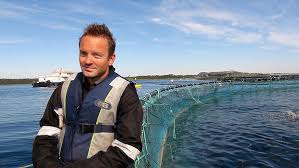Plan for salmon tax price council under fire

The Norwegian government is planning to create an independent council to determine the price of salmon when calculating the new ground rent tax, it has emerged.
But the idea is being opposed by the country’s salmon industry which says tax rates should be based on the actual price achieved rather than a figure arrived at by an outside body.
After months of tough negotiations, a new tax rate of 25% was voted in by the Norwegian parliament in May, much to the anger of the industry. The tax is backdated to January this year although the industry will not start paying until 2024.
The government says it wants an independent council to determine the market value of traded farmed fish, and it has set out its plan for consultation between now and early September.
Finance Minister Trygve Slagsvold Vedum said the scheme will simplify the assessment process for both the aquaculture companies and tax authorities.
The price council is likely to consist of at least five members and will have to take into account differences in quality, fish size and whether it has been sold at current or fixed (contract) prices.

Seafood Norway CEO Geir Ove Ystmark
But Seafood Norway (Sjømat Norge), which represents salmon companies, has come strongly out against the plan.
Geir Ove Ystmark, Seafood Norway’s CEO, said salmon was far from a uniform product, arguing that it should be taxed based on prices actually achieved.
“Sjømat Norge will thoroughly examine what the government has now proposed and will submit a more thorough response to the consultation over the summer.
“Salmon is a completely different product than a barrel of oil or a kilowatt hour. There are different sizes and qualities and production areas, but also different contract types and end markets. Fish of the same size and quality can fetch different prices in different markets. This shows that pricing is much more complex than in other industries.
“Sjømat Norge has therefore previously warned against the use of standard price advice and standard prices based on models from the oil industry.”
Ystmark added: “We must ensure that the companies do not have to pay tax on an income they have not had.”
He also said companies were concerned that the process will require significant administrative resources for both small and large businesses.

